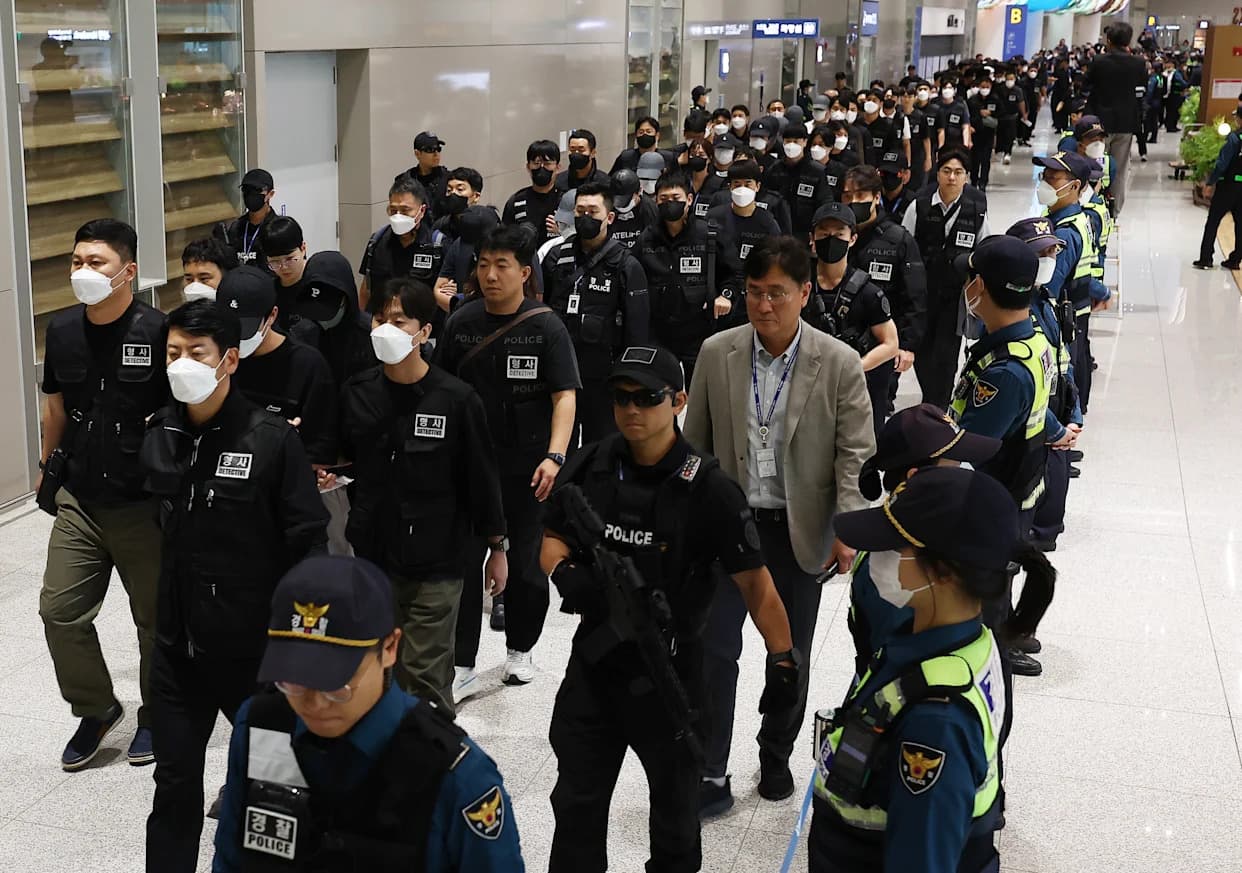Scam compounds across Southeast Asia have become a transnational criminal industry. Originating in casino and junket networks, these operations now run online frauds that have defrauded victims worldwide and rely on both trafficked and deceived workers. Recent raids — including a Myanmar operation at KK Park that displaced about 1,500 people — have freed some laborers, but activists say kingpins and syndicates largely remain at large. Experts call for international cooperation and prosecutions, not only rescues, to dismantle the networks.
Scam Compounds Spread Across Southeast Asia Despite Crackdowns, Fueling Forced Labor and Global Fraud

Scam compounds spread across Southeast Asia despite government crackdowns
What begins as an innocuous text — a weekend availability check, a part‑time job offer or a simple “hello” from an unknown number — can link a person to a vast criminal enterprise. Far away, workers in Southeast Asia may be logging 12–16 hour days, sending message after message in the hope of hooking a target.
Their objective is always the same: to steal money. Victims have surrendered tens of billions of dollars to these operations, and hundreds of thousands of people are believed to be forced into labor to keep the schemes running. Many of those workers live in enormous compounds scattered across the region.
The Myanmar raid and displaced workers
Last month Myanmar’s military moved into one of the best-known scam complexes — the sprawling KK Park near the Thai border — and announced the site’s closure, though civil society groups later reported parts may still be operating. About 1,500 workers fled the compound; many were from India, China, the Philippines, Vietnam, Ethiopia, Kenya and other nations.
Thai authorities said troops demolished several buildings inside the complex. Thailand is coordinating with India and other governments to repatriate their citizens; one large group of workers was flown home on Indian air force planes, with more returns planned.
KK Park is only one of dozens of such sites along the Thai–Myanmar border and among hundreds of centers activists and officials say exist across Southeast Asia.
How the centers operate
Scam compounds typically sit in rural or semi‑rural areas and resemble campuses: dormitories, shops and entertainment for staff. Developers often build large properties and lease interior space to multiple criminal operations. Smaller setups also exist — whole floors of legitimate office buildings or rented houses in cities.
The industry expanded alongside a boom in casinos — both physical and online — across the region. The United Nations Office on Drugs and Crime (UNODC) recorded more than 340 licensed and unlicensed casinos in 2021. Those casinos and the junket tours tied to them drew high‑rolling customers, especially from China, and were often run or protected by organized criminal networks.
When the COVID‑19 pandemic curtailed travel, some casino operators pivoted to digital fraud. Without regular customers, parts of the industry repurposed infrastructure and personnel to run online scams targeting victims worldwide.
Trafficked and deceived workers
Estimates vary, but a 2023 Office of the U.N. High Commissioner for Human Rights report suggested at least 120,000 people in Myanmar may be held in conditions forcing them to work on online scams, with roughly another 100,000 in Cambodia. These figures are approximate but reveal the scale of the problem.
Scam operations recruit a mix of coerced and willing labor. Recruiters lure people with promises of good pay and simple office jobs. Over time, recruits have come from dozens of countries — UNODC says as many as 56 nations — including Indonesia, Liberia and many African and Southeast Asian states.
Many workers report passport confiscation, restricted movement and brutal punishments for failing to meet quotas or orders. Only senior managers and trusted lieutenants generally enjoy freedom of movement.
A global fraud network
Scammers target victims worldwide and increasingly use translation tools and artificial intelligence to reach people in many languages. In March 2024, Philippine authorities raided a complex where workers used scripts to impersonate senior employees of state‑owned companies and defraud Chinese nationals. U.S. prosecutors recently announced an indictment of Chen Zhi, a Chinese‑Cambodian businessman accused of running a network that defrauded 250 Americans of millions of dollars.
U.S. Treasury figures show Americans lost at least $10 billion in 2024 to scams tied to Southeast Asia.
How victims are targeted
Scams take many forms: bogus investment offers, romance cons, illegal gambling schemes and so‑called online task scams that require upfront payments to receive further “tasks” (with small early payouts to build trust). Scammers typically manufacture urgency, pressuring victims to act quickly or miss an opportunity.
Despite repeated crackdowns and raids that have closed some compounds and freed some workers, activists warn that the kingpins and transnational syndicates largely remain at large and can reconstitute operations elsewhere. New reports of scam centers continue to emerge across Southeast Asia and beyond, including in Africa and Latin America.
“If we only rescue the victims, and don’t arrest anybody, especially the criminal syndicates, then there will be no point,” said Jay Kritiya, coordinator of the Civil Society Network for Victim Assistance in Human Trafficking. “They can get more victims ... they can scam anytime.”
What’s needed: rescuing and supporting exploited workers is crucial, but activists and experts say effective, sustained law enforcement targeting transnational organizers — together with international cooperation, stronger prosecutions and improved support for victims — is essential to dismantle the networks driving this industry.
Help us improve.




























